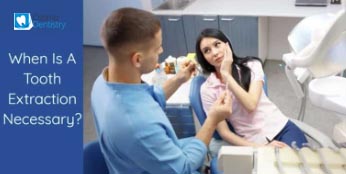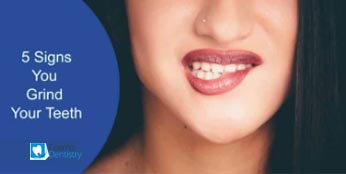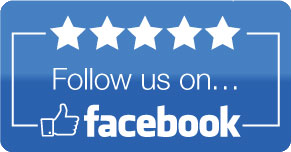When Is A Tooth Extraction Necessary?
What is the difference between a minor toothache and advanced tooth decay? One is treatable with some good home care and maybe a filling, while the other, most likely requires a tooth extraction. As a dental patient, it can often be difficult to discern when you can rescue a tooth and when it is better to extract it and get a replacement.
The best way to know when a tooth extraction is necessary is to see your dentist and to get your teeth professionally examined. However, if you’re simply exploring the possibilities online, here are some common instances in which people usually need to get a tooth pulled.
1. After an Accident
Unexpected accidents or sports injuries can cause a healthy tooth to suddenly become loose or fall out. While there is a possibility to save a healthy tooth by re-attaching it and performing a root canal, if you wait too long, you will need to remove the tooth altogether.
Therefore, if your efforts to preserve your tooth fail and your damaged tooth dies, you will have to extract it and get a replacement. Dental implants or bridges are excellent options that can restore the functionality of the tooth that you lost.
2. Wisdom Teeth
Adults often get an extra set of molars called wisdom teeth. They can start to come forth in one’s late teens or young adulthood. Though some people can live with their extra molars and experience no complications, there are instances in which the teeth are impacted or emerge improperly. These kinds of wisdom teeth often require extraction as they pose health risks like pericoronitis and chronic bad breath.
3. Tooth Decay
When the center of your teeth, which is called the pulp, gets infected, your dentist can sometimes save the tooth with a root canal. However, severe decay makes it nearly impossible to preserve the natural tooth. In this case, extracting the tooth and replacing it with a bridge or dental implant will greatly improve the quality of your smile.
4. Gum Disease
Your gums are extremely important for your oral health. If they aren’t healthy, your teeth won’t do well either. If you have advanced gum disease in which the gum’s ligaments and your jaw bone are infected, your teeth may not be able to stay properly anchored.
Your first line of defense is to fight the infection with antibiotics and to try and preserve your teeth. However, if your teeth can’t stay anchored, it’s best to remove the teeth, treat the infection, then replace your lost teeth with dental implants or dentures.
5. Impacted tooth
Not just wisdom teeth can erupt improperly. Sometimes, regular teeth can also partially emerge, causing bacteria and debris to get trapped between your teeth and gums. Impacted teeth are a risk because they increase your chances of getting gum disease or harmful infections. Extracting the problem tooth will help the situation.
6. To Prevent Overcrowding
Sometimes your jaw may not be large enough to accommodate all the teeth that are coming in. Also, if a patient is undergoing orthodontic treatment, pulling a few teeth to prevent overcrowding as the braces do their work is essential. To get the best alignment, it may be necessary to pull a few teeth.
Types of extractions
If your dentist decides that you need to get your tooth pulled, there are two possible ways to extract it:
Simple extraction
This is the less complicated and quicker option. Simple extractions are performed on fully erupted teeth that are completely visible to the naked eye. You can be in and out of the office quickly because your dentist will only need to use local anesthesia.
Surgical extraction
This option is necessary for partially erupted or impacted teeth. Surgical extraction is the safer option for teeth that can’t easily be extracted through normal means. General anesthesia is sometimes required for this procedure to keep the patient as comfortable as possible. The recovery time after this kind of extraction takes longer compared to a simple extraction.
Tooth Extraction in Houston
If you think you may need to have your tooth pulled, you should get the expert advice from a dentist first. Come and visit our practice for a consultation to find out the best way to take to care of your smile.





